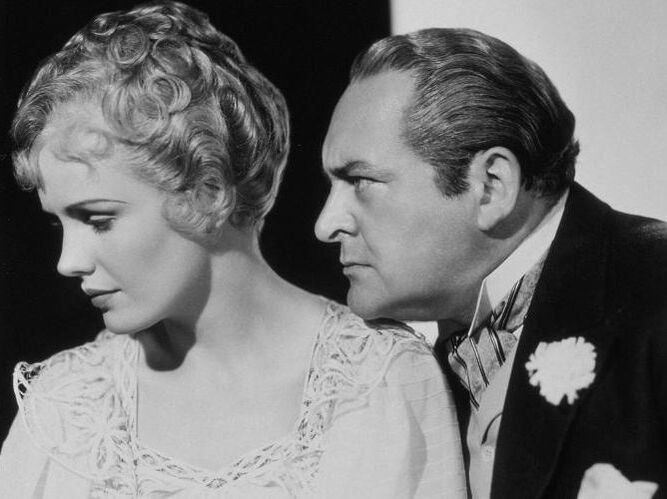|
An ambitious lumberjack marries into wealth, but finds himself
falling in love with the daughter of an old flame years later. DRAMA
|
Come and Get It (1936)Directed by Howard Hawks and William Wyler
Written by Jane Murfin and Jules Furthman Starring Edward Arnold, Frances Farmer, Walter Brennan, Joel McCrea, Mady Christians Based on the novel by Edna Ferber Oscar Wins - Best Supporting Actor (Walter Brennan) Oscar Nominations - Best Film Editing |
When I first started Come and Get It, and I saw the phrase "Directed by Howard Hawks and William Wyler," I just about lost my mind. Two of the greatest filmmakers of the twentieth century united in the name of the cinematic experience. What a treat! Then I was informed that neither director actually wanted to take credit for the film, and it all amounted to a big game of "Hot Potato." Basically, it was a work for hire that both men disowned, and I can sort of see why. It's not a great film. It lacks direction, most of the characters are annoying, and it ends abruptly without much resolution. Still, it wasn't boring.
Our hero is an ambitious lumberjack named Barney Glasgow (Arnold, who is one of the few actors really trying). Barney is respected by the right people, and is idolized by his Swedish friend Swan (Brennan, the first actor to win Best Supporting Actor, and it was for this irritating performance). One day, Barney and Swan are celebrating and they meet a gorgeous young woman named Lotta (Farmer). Barney and Lotta fall in love, but Barney has a marriage obligation elsewhere, so he walks out on her. Lotta marries Swan, but she dies. Years later, Barney visits Swan and meets their daughter, also named Lotta, who looks just like Barney's old flame. Barney, now an old, married, but filthy rich man, falls for Lotta 2 and tries to seduce her. Of course, Lotta is kinda creeped out and instead falls for Barney's son Richard (McCrea). Then, it's over. We needed another twenty minutes at least to resolve some of this. Come and Get It isn't the worst film I've seen from the 1930s, but it desperately needs work. It feels somewhat unfinished, and padded with gratuitous scenes of logging work. I'm not quite sure who the intended audience was or why this film is so accessible when so many better films are nearly lost to time. Regardless, I did like some things about it. |
